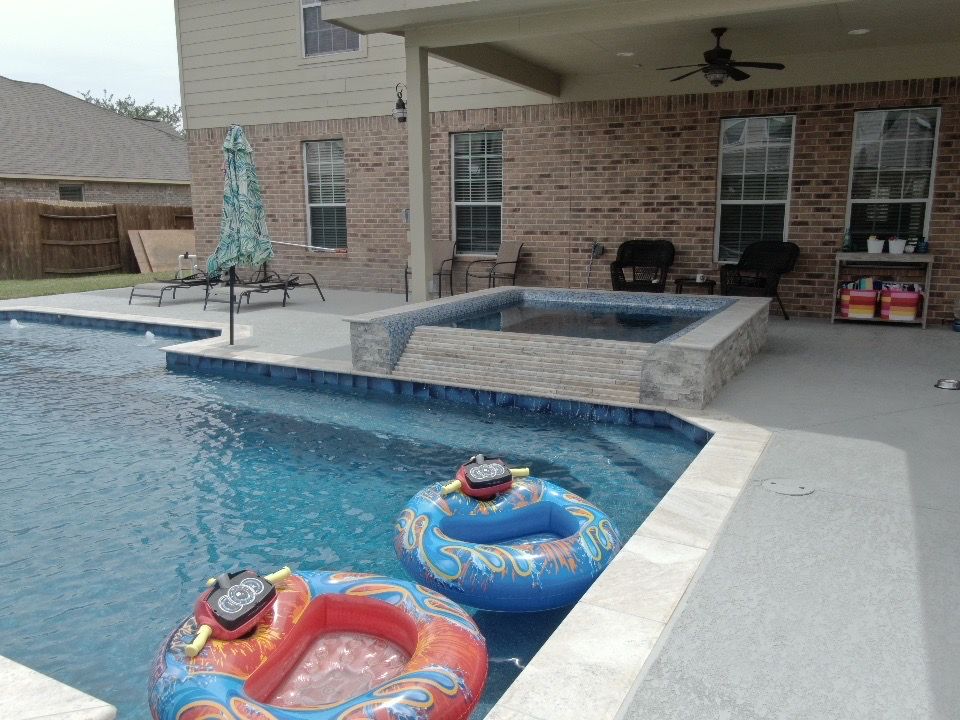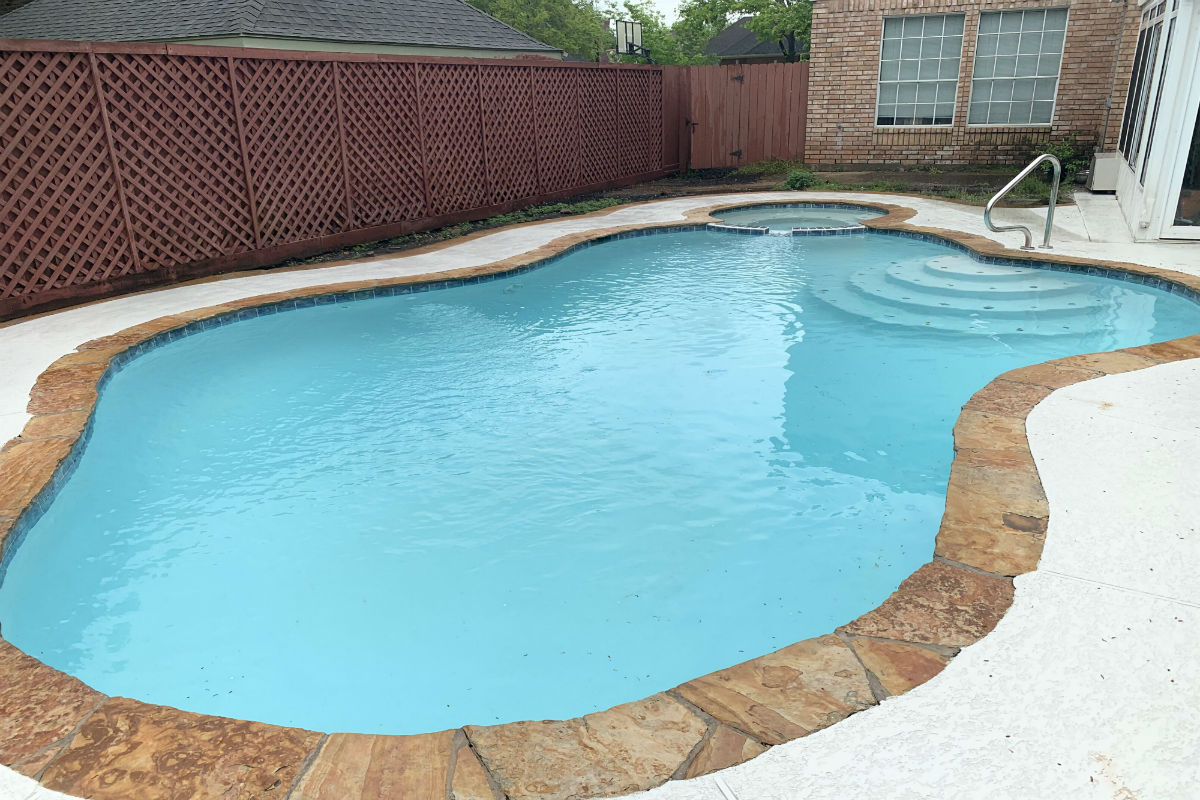When you think about pool upkeep, you probably imagine using nets to scoop leaves and bugs out of the water or keeping it covered during the winter. However, proper cleaning doesn’t mean simply catching dead leaves and debris. The real threat isn’t even visible to the naked eye – pool water can contain millions of unseen dangers in the form of parasites and pathogens that can’t be picked up by a net.

A pool is no good if it’s too dirty to swim in! Use effective sanitation methods to keep it clean.
A typical outdoor pool has several parts, and each one needs proper care to keep you and your fellow swimmers safe from these invisible intruders. (And maybe a spider or two.) Each part plays a pivotal role in making your pool safe from the water to the filter system. In this post, JR Pool Plastering & Texas Gunite Ltd. will focus on maintaining what makes a pool so great: its water.
Your Pool’s Water
Without water, your pool is just a giant hole in the ground (though decorations might make it a nice hole). That’s why keeping the water inside as clean as possible is imperative. Obviously, scooping out dead bugs and debris isn’t enough, and soap isn’t going to cut it, either.
Pools need thorough sanitizing procedures to keep everyone inside safe from harmful bacteria and parasites. Luckily, you have several options for maintaining clean water. Chlorine, typically added in tablet form, is the most popular option for keeping pool water clear. However, excess amounts of this chemical can cause a powerful odor and irritate your eyes and mucous membranes.
Saltwater chlorination is another possible option, but it’s not recommended for marcite or gunite pools since this can cause erosion, creating abrasive plaster surfaces. You could also consider bromine, which causes less irritation and doesn’t give off a strong smell like chlorine does. Unfortunately, it’s not perfect since exposure to sunlight reduces its efficiency, making it a better option for indoor pools.
Try hydrogen peroxide if you want a less powerful chemical that works well outside. Sunlight or artificial UV light helps activate it, creating a chemical reaction that can destroy any bacteria hiding in your water. If you’re allergic to chlorine, this might be the best way to kill algae and parasites that invade your pool.

Consider how different sanitization methods will affect your pool and its occupants.
Supplementary Sanitation Systems
In addition to chemicals, there are other ways to sanitize your pool properly. UV light sanitation systems, for example, are great for keeping the water clean while using fewer chemicals. Their lamps can last from 4,000 to 9,000 hours until they need to be replaced. However, you’ll still need some chemicals to help them work.
Similarly, ozone systems are another great supplementary oxidizing method that doesn’t require trips to the store for “refills.” The amount of ozone that enters the pool in returning water is also a very low level that’s considered safe for humans. It works well for both indoor and outdoor pools, producing ozone by either corona discharge or UV light.
Depending on your budget and your personal preferences, you can choose which pool sanitizing solution is best for your outdoor space. And if you decided that your clean pool needs upgraded looks, give us a call at JR Pool Plastering & Texas Gunite Ltd. or visit our Houston office for a pool remodeling consultation!